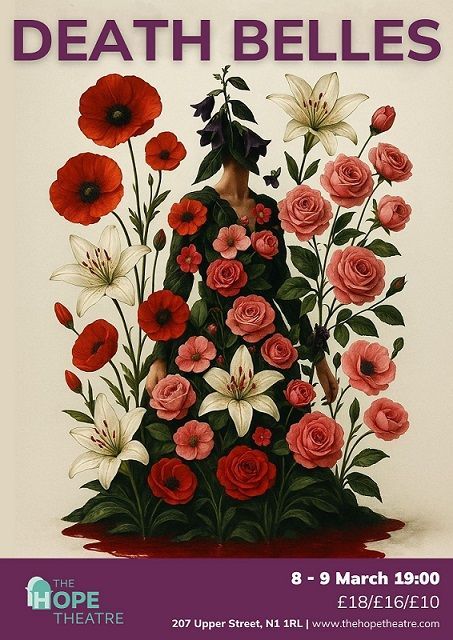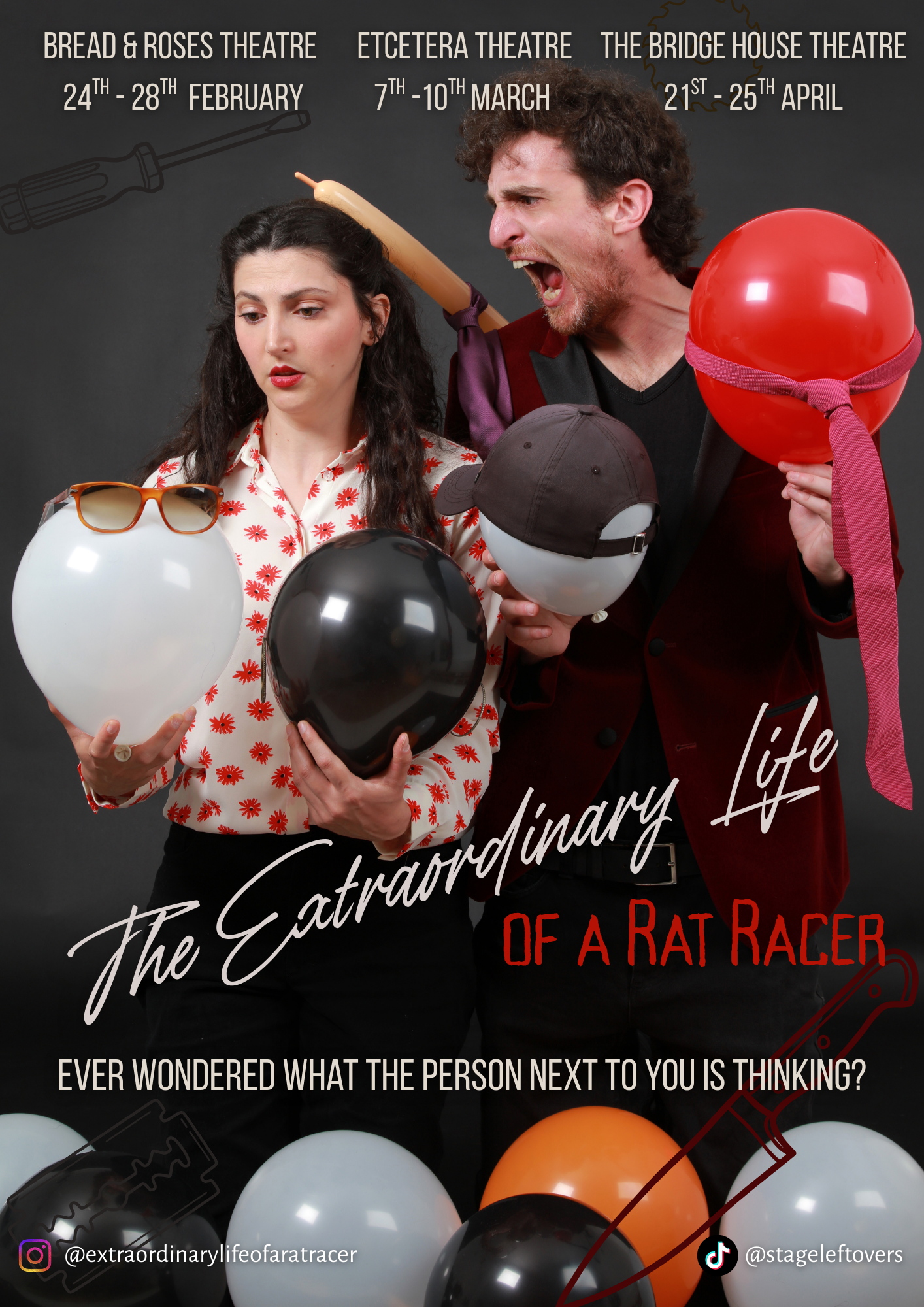REVIEW: The Musical Medea at Upstairs at the Gatehouse 29 July – 3 August 2025
‘You will hear her.’ ★★★
That's the tagline of this version of Medea—the infamous Greek myth about a woman who killed her own children to get revenge on her husband. If that's a spoiler, I'm very sorry. (It has, however, been 2500 years. Catch up.)
Medea has been staged in countless ways. Writer & composer Costas Hassabis has decided to make his rendition a feminist folk musical, performed by a band of actor-musicians who welcome us in casually: ‘Make yourselves at home, we're just having a little sing-song at the moment.’ When Medea appears, playing the flute, she leads the pack. Everything is love and joy and 70s counter-culture chill.
Director Tara Noonan has worked in the Gatehouse before, and it shows. As in last year's Songs for a New World, she and her production team know how to make this space shine. The stage is warm and colourful, bedecked with velvet curtains and sparkling stars. Cheerful cafe tables crowd together. Fleetwood Mac posters are plastered across the piano. Only a framed painting of a sailing ship reminds us that we're in ancient Greece.
The set-up poses an intriguing question: Can you really tell one of the darkest of myths via a musical genre known for its gentleness and vibes? The answer: Yes you can, if you cheat the darkness. Too often, The Musical Medea shies away from the brutality of its source—not across the board, but when it comes to its heroine. Because that is how the show firmly frames her: Medea is the wronged woman, the bright-eyed innocent disillusioned by her husband's cruelties. Those themes are present in the source, of course. (Jason has always been, and will always be, a gigantic prick.) But the show avoids plot-points that would complicate the picture. Early on, Medea betrays her country to help her lover. What the show leaves out is that this betrayal traditionally consists of killing her brother and chopping him into pieces. It's a sign of what's to come: this is a softened Medea—and the changes more often fall flat than feel transformative.
That is largely the fault of the book and lyrics, which show little faith in the audience's ability to read between the lines. Everything is spelled out and underlined. The spoken text is prosaic, the rhymes are on the nose and the characters insist on making explicit references to the musical symbolism (‘You're the Musical Medea!’)
Where the show does succeed is in its compositions and, above all, the musical excellence of its ensemble. Under Thomas Arnold's musical direction, the seven performers work harmoniously together, and are adept at a dizzying range of instruments. Flo Lunnon's voice shines as Medea, while other ensemble members get their own stand-out scenes. Felix Gillingwater's bumbling King Aegis is a particular highlight. Noonan and movement director Kim Wright have worked with this musicality to create some beautiful moments: Medea the sorceress, enchanting her flock. A haunting lullaby and a cradled scarf as the reality of motherhood sinks in. A piano duet (Lunnon, Higgins) that shows a relationship falling apart. Wherever the show lets these moments speak for themselves, it is at its strongest.
Tonally, The Musical Medea is still bit of a jumble. Is it musical? Yes. Is it Medea? Not quite.
The Musical Medea at Upstairs at the Gatehouse 29 July – 3 August
Part of Camden Fringe
Box Office https://camdenfringe.com/events/the-musical-medea/
Creatives
Writer & Composer: Costas Hassabis
Director: Tara Noonan
Assistant director: Lewis Reece Jones
Musical Director: Thomas Arnold
Movement director: Kim Wright
Ensemble
Flo Lunnon (Medea), Alistair Higgins, Gracie Lai, Jon Bonner, Caoimhe De Brún, Felix
Gillingwater, Thomas Fabian Parrish









